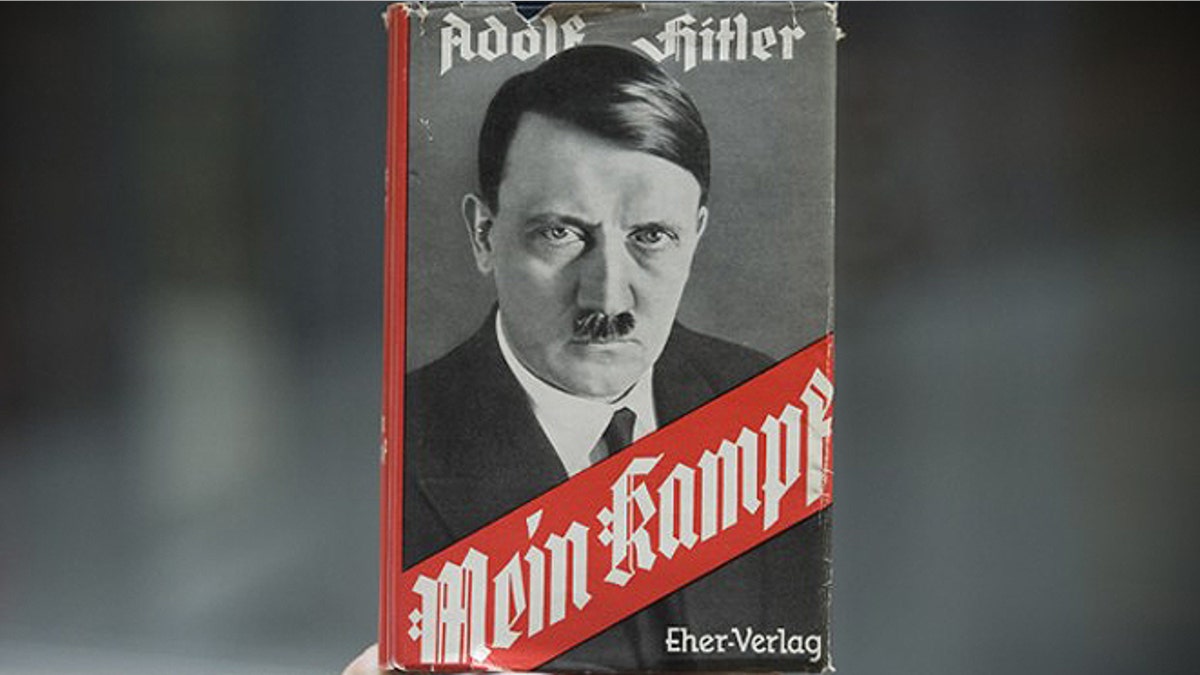
Three self-styled liberal scholars were given the academic green light for a rewritten version of Adolf Hiter’s Mein Kampf by a leading feminist journal.
“We rewrote a section of Mein Kampf as intersectional feminism and this journal has accepted it,” James Lindsay said in a YouTube video revealing a year-long project he worked on with other self-described left-wing academics, Peter Boghassian and Helen Pluckrose.
The trio submitted 20 papers with absurdities and “morally fashionable political ideas” to significant peer-reviewed academic journals exposing a corrupt political agenda in fields such as women’s and gender studies, race studies, queer studies and cultural studies, the Wall Street Journal reported.
The summary of the feminist version of Mein Kampf reads: “Feminism which foregrounds individual choice, responsibility, female agency, and strength can be countered by a feminism which unifies in solidarity around the victimhood of the most marginalized women in society.”
The paper was based on a rewriting of Chapter 12 of Volume I of Mein Kampf, in which Hitler lays out a multi-point plan why the Nazi Party was needed and what it required of its members.
The paper was accepted after being peer-reviewed by Affilia: Journal of Women and Social Work, which analyzes gender inequality.
The co-editor in chief of Affilia wrote: “Reviewers are supportive of the work and noted its potential to generate important dialogue for social workers and feminist scholars.”
The trio did the hoax experiment as a plea to their progressive counterparts and minority groups to think for themselves and analyze the work coming out of academia.
“There’s this kind of like religious architecture in their mind where privilege is sin. Privilege is evil,” Lindsay said, “and they’ve identified education as the place where it has to be fixed.”
Here is a portion of “Our Struggle Is My Struggle: Solidarity Feminism as an Intersectional Reply to Neoliberal and Choice Feminism,” which hints at Hitler’s work in the very title:
“Put another way, if more feminists had, rather than becoming distracted by seductions of choice, the baubles of neoliberalism, or male approval, implacably guarded the interests of oppressed people especially those dominated by racism, colonialism, imperialism, ableism, homophobia, classism, and all other manners of oppression that intersect with feminism and if in matters of remaking society more feminists had avowed only their commitment against all oppressions with equal intensity as they defended their will to female choice, and if with equal firmness they had demanded justice for all those oppressed by systems of power, today we would very likely have equality.”
They point out this sort of “biased research” would not be accepted in any other industry, but is pervasive in higher education.
“This is deeply concerning because the work of grievance scholars goes on to be taught in classes, to design educational curricula, to be taken up by activists, to influence how media is produced, and to misinform journalists and politicians about the true nature of our cultural realities,” Lindsay said.
The trio points out that, if you agree “whiteness” and “masculinity” are problematic, you can come up with a lot of “nasty arguments” as long as you “frame it in terms of overcoming privilege.”









































